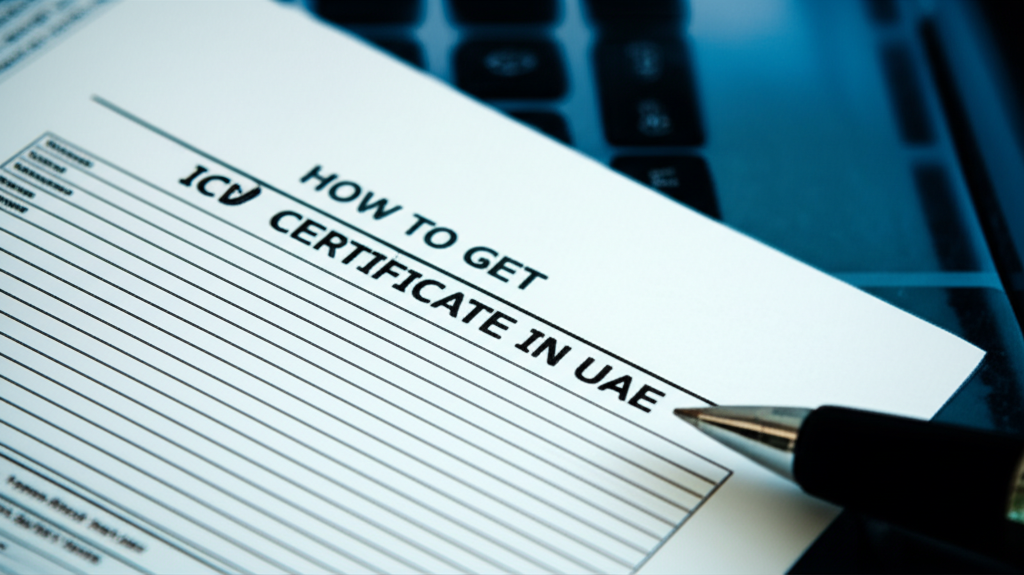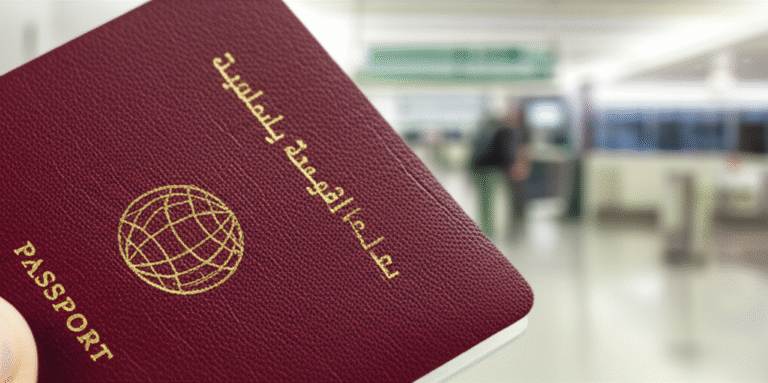How To Get ICV Certificate In UAE: Essential Guide

Get your UAE ICV certificate easily with this step-by-step guide. We’ll walk you through the requirements, application process, and what you need to know to successfully secure this vital document for your business in the Emirates.
Navigating the requirements for doing business in the UAE can sometimes feel like a puzzle, and one piece that many businesses need is the ICV certificate. ICV stands for In-Country Value, and it’s a program designed by the UAE government to encourage companies to contribute more to the local economy. If you’re wondering how to get your ICV certificate in the UAE, you’re in the right place! It might sound a bit daunting, but I promise, with a little guidance, it’s totally manageable. Think of me as your friendly guide, here to break down the process and make it as smooth as possible for you and your business. Let’s get started!
What is the ICV Certificate and Why Do You Need It?

The In-Country Value (ICV) program is a national initiative launched by the UAE government, primarily driven by the Ministry of Industry and Advanced Technology (MoIAT). The core idea is to boost the local economy by increasing the procurement of goods and services from within the UAE. When your business demonstrates a strong ICV score, it signals to other companies, especially those in the oil and gas sector and other government-related entities, that you are a valuable partner contributing to the nation’s growth.
So, why is it essential? Primarily, having an ICV certificate can significantly enhance your company’s competitiveness when bidding for contracts with major UAE entities. Many of these entities have made ICV certification a mandatory requirement for suppliers and contractors. This means without it, you might be excluded from significant business opportunities. It’s a way for the UAE to ensure that the economic benefits derived from its natural resources are reinvested back into the country, supporting local businesses, creating jobs, and fostering innovation. By obtaining your ICV certificate, you’re not just fulfilling a requirement; you’re positioning your business for greater success and alignment with the UAE’s economic vision.
Who Needs an ICV Certificate?

Generally, the ICV certificate is most crucial for companies that:
Are registered and operating within the UAE.
Wish to supply goods or services to major oil and gas companies, or other government and semi-government entities that have adopted the ICV program.
Are looking to enhance their competitive edge in tenders and contracts.
While the program originated with ADNOC (Abu Dhabi National Oil Company) and has been widely adopted by other major players, its influence is growing. If your business aims to secure contracts with entities participating in the ICV program, this certificate is a must-have.
Understanding the ICV Score Calculation

The ICV certificate isn’t just a stamp of approval; it’s based on a calculated score. This score represents the value your company adds to the UAE’s economy. The calculation considers various factors, and understanding these will help you prepare your application. While the exact formulas can be complex and are subject to updates by MoIAT, the general categories contributing to your ICV score typically include:
Goods Manufactured in the UAE: The cost of goods produced or manufactured within the UAE.
Local Services: The cost of services procured from UAE-based suppliers.
Emiratisation: The contribution towards employing UAE nationals, including salaries and benefits.
Expatriate Employees: A portion of the salaries paid to expatriate employees.
Investment in UAE Assets: Capital expenditure on tangible assets within the UAE.
Exports: Revenue generated from exporting goods or services produced in the UAE.
Redundant Imports: The value of goods or services that would otherwise have been imported but are now sourced locally.
The final score is usually expressed as a percentage. A higher percentage indicates a greater contribution to the UAE’s economy. It’s important to refer to the latest guidelines provided by MoIAT or your chosen certifying body for the most up-to-date calculation methodology.
Key Requirements for ICV Certificate Application
Before you dive into the application process, it’s essential to gather the necessary documentation and ensure your business meets the prerequisites. Here’s a breakdown of what you’ll typically need:
1. Business Registration and Legal Status
Valid Trade License: Your company must have a valid trade license issued by the relevant UAE authority (e.g., Department of Economic Development – DED, or free zone authorities).
Memorandum of Association (MOA) / Articles of Incorporation: Updated and attested copies.
Ownership Structure: Clear details of company ownership.
2. Financial Records
This is arguably the most critical part of the application. You’ll need to provide audited financial statements for the period relevant to your ICV calculation (usually the last financial year).
Audited Financial Statements: These should be prepared by a reputable, registered audit firm in the UAE. They need to reflect your company’s financial performance accurately.
Breakdown of Expenditures: You’ll need to meticulously break down your expenses according to the ICV categories mentioned earlier. This includes costs of goods manufactured locally, local services procured, salaries, etc.
Invoices and Proof of Purchase: For several categories, supporting documentation like invoices, purchase orders, and payment receipts will be required to verify your claims.
3. Operational Details
Details of Goods/Services: A clear description of the goods you manufacture or the services you provide.
Breakdown of Production Costs: If you manufacture goods, you’ll need to show the cost breakdown, differentiating between local and imported components.
Supplier Information: Details of your key local suppliers.
4. Human Resources Information
Emiratisation Data: Proof of Emirati employees, including their Emirates ID, salary details, and employment contracts.
Expatriate Employee Data: While less impactful than Emiratisation, you may need to provide details for a portion of expatriate employee salaries.
5. Other Supporting Documents
Company Profile: A comprehensive overview of your company’s history, activities, and capabilities.
Certificates of Origin: If claiming value for locally manufactured goods.
Contracts with Major Entities: Copies of existing contracts with companies that require ICV certification can be beneficial.
Important Note: The specific documents required can vary slightly depending on the certifying body and the specific industry. Always check the official guidelines of the certifying body you choose.
The Step-by-Step Process to Get Your ICV Certificate
Now that you know what you need, let’s walk through the typical steps involved in obtaining your ICV certificate.
Step 1: Choose a Certifying Body
The UAE government has accredited several professional firms to conduct the ICV audit and issue the certificate. These are typically large audit firms with expertise in financial verification. You’ll need to select one of these authorized bodies.
How to find them: The Ministry of Industry and Advanced Technology (MoIAT) provides a list of accredited certifying bodies on its official website. It’s crucial to choose a body that is approved by MoIAT.
Factors to consider: When choosing, you might look at their experience with companies in your sector, their fees, and their turnaround times.
Step 2: Prepare Your Documentation
This is where you’ll spend most of your effort. Gather all the required financial statements, invoices, HR records, and other supporting documents as detailed in the previous section.
Organize your data: Ensure your financial records are meticulously organized and can easily be mapped to the ICV calculation criteria.
Seek professional help (internally or externally): If your internal accounting team is not familiar with ICV calculations, consider hiring an external consultant or working closely with your auditor to ensure accuracy. Many companies find this invaluable.
Step 3: Submit Your Application to the Certifying Body
Once your documentation is ready, you’ll typically submit an application form along with all supporting documents to your chosen certifying body.
Online portals: Many certifying bodies have online portals for application submission, making the process more streamlined.
Initial review: The certifying body will conduct an initial review of your submission to ensure all necessary documents are present.
Step 4: The ICV Audit Process
The certifying body will then conduct a thorough audit of your submitted information. This involves:
Verification of Financials: They will scrutinize your audited financial statements and supporting documents to verify the figures and claims related to your ICV score.
On-site Inspection (potentially): In some cases, the auditors might conduct an on-site visit to your premises to verify operational aspects, especially if you claim value for manufactured goods or local services.
Interviews: Auditors may interview key personnel within your company (e.g., finance managers, procurement officers) to understand your business operations and data.
This phase is crucial for ensuring the integrity of your ICV score. Be prepared to answer questions honestly and provide any additional information requested.
Step 5: Receive the ICV Certificate
After the audit, if your claims are verified and you meet the program’s requirements, the certifying body will issue your official ICV certificate.
Validity: The ICV certificate is typically valid for 12 to 18 months from the date of issue, depending on the certifying body and the specific entity requiring it.
Digital Format: Most certificates are issued in a digital format.
Step 6: Use Your ICV Certificate
Once you have your certificate, you can present it to potential clients, especially those in the oil and gas sector, when participating in tenders or bidding for contracts.
Submission with Tenders: When submitting a bid, you will usually be required to attach a copy of your valid ICV certificate.
Maintaining Compliance: Remember to plan for renewal before your certificate expires to ensure continuous eligibility for contracts.
Tips for a Smooth ICV Certificate Application
Start Early: The process can take time, especially gathering and verifying documents. Begin well in advance of any tender deadlines.
Be Accurate and Honest: Ensure all information provided is accurate and verifiable. Misrepresentation can lead to penalties.
Understand the Calculation: Familiarize yourself with how your ICV score is calculated. This helps in organizing your data and identifying areas where you can potentially improve your score.
Engage with Your Auditor: Maintain open communication with your appointed certifying body. Clarify any doubts you have regarding the process or documentation.
Consider a Consultant: If you find the process overwhelming, especially for your first application, hiring an experienced ICV consultant can significantly ease the burden and improve your chances of success.
Keep Records Up-to-Date: For future applications and renewals, maintain a robust system for tracking all relevant financial and operational data throughout the year.
ICV Certificate Requirements by Major Entities
While MoIAT sets the overarching framework, major entities like ADNOC and others often have specific guidelines or preferences for their suppliers.
ADNOC (Abu Dhabi National Oil Company)
ADNOC was one of the pioneers of the ICV program. Their requirements are stringent and form the basis for many other entities. They have a dedicated portal and a clear process for suppliers to obtain their ICV certification through accredited third-party certifiers. For ADNOC, the ICV certificate is crucial for suppliers looking to be part of their value chain.
Other Major Entities
Many other companies in the UAE, particularly those in the energy sector and major government contractors, have adopted similar ICV programs. Examples include:
Abu Dhabi Department of Energy (DoE)
Emirates Nuclear Energy Corporation (ENEC)
Mubadala Investment Company
TAQA (Abu Dhabi National Energy Company)
These entities typically accept certificates issued by MoIAT-accredited bodies. It is always advisable to check the specific procurement guidelines of the entity you are looking to contract with for their precise ICV requirements.
Improving Your ICV Score
Securing an ICV certificate is a great achievement, but many businesses also look for ways to improve their score over time. Here are some strategies:
Increase Local Procurement: Prioritize sourcing goods and services from UAE-based suppliers.
Boost Emiratisation: Focus on hiring and retaining UAE nationals, offering competitive salaries and benefits.
Invest in Local Assets: Acquire or develop more physical assets (land, buildings, machinery) within the UAE.
Enhance Local Manufacturing: Increase the proportion of locally manufactured components in your products.
Develop Local Talent: Invest in training and development programs for your employees, particularly UAE nationals.
* Streamline Exports: If you export goods or services produced in the UAE, ensure this is well-documented as it can positively impact your score.
Frequently Asked Questions (FAQs)
Q1: How long does it take to get an ICV certificate?
The timeline can vary, but typically it takes anywhere from 2 to 6 weeks from the date of submitting all complete documentation to the certifying body. This depends on the auditor’s workload and the complexity of your business operations.
Q2: How much does an ICV certificate cost?
The fees for obtaining an ICV certificate vary depending on the certifying body you choose. They usually range from AED 5,000 to AED 15,000 or more, based on the size and complexity of your company and the scope of the audit. It’s best to get a quote from a few accredited bodies.
Q3: What is the difference between an ICV certificate and a local supplier registration?
A local supplier registration is often a prerequisite for doing business with certain entities and confirms your company’s legal standing within the UAE. An ICV certificate, on the other hand, is a specific assessment of your company’s contribution to the UAE’s economy, which is often a separate requirement for tenders, particularly in the oil and gas sector.
Q4: Can a company registered in a free zone get an ICV certificate?
Yes, companies registered in UAE free zones can obtain an ICV certificate, provided they meet the program’s criteria and are accredited by MoIAT. The calculation might slightly differ based on free zone regulations.
Q5: What if my company’s financials are not audited?
An audited financial statement from a registered audit firm in the UAE is usually a mandatory requirement for the ICV certificate application. If your company doesn’t have audited financials, you will need to arrange for an audit first.
Q6: Do I need to renew my ICV certificate?
Yes, ICV certificates have a validity period, typically 12 to 18 months. You will need to undergo the process again and obtain a new certificate before the current one expires to continue meeting tender requirements.
In Conclusion
Obtaining an ICV certificate in the UAE is a significant step for businesses looking to expand their reach and secure valuable contracts with major national entities. While the process requires careful preparation and attention to detail, especially concerning financial documentation, it is entirely achievable. By understanding the requirements, choosing the right certifying body, and meticulously organizing your company’s data, you can successfully navigate this process. Remember, the ICV program is designed to foster local economic growth, and by participating, your business aligns itself with the UAE’s vision for a prosperous and diversified economy. Take it one step at a time, and don’t hesitate to seek professional guidance if needed. You’ve got this!

